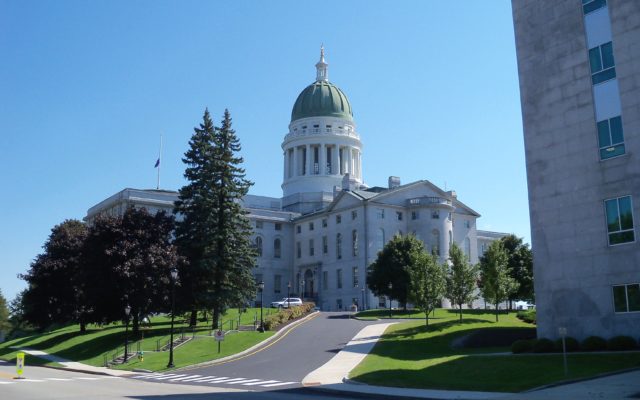
A new property tax freeze for Maine seniors is expected to cost the state millions
By Michael Shepherd, Bangor Daily News Staff
A sweeping new program that aims to freeze property taxes for Maine seniors faces big questions from the local officials who will have to implement it about two weeks before it takes effect.
The under-the-radar measure could have a major effect in the nation’s oldest state by median age and the one with the second-highest homeownership rate. Nearly 80 percent of Mainers aged 65 and older owned homes in 2017, according to census data. It means that more than 200,000 people could see property tax payments frozen under the program, with the state making up the difference to the municipalities seeing reduced tax payments.
But cities and towns do not know how many residents will be eligible for a program that Mainers will have to opt into at municipal offices each year. It will grow more expensive over the next several years as the population ages and as more people sign up for a new program that comes with no income limits and few other restrictions.
The state has only dedicated a scant amount of funding that will be needed so far, which is just one of the reasons some local officials are worried about implementing it.
“We could get between 500 and 1,000 applications, and we’re a very small office and have other things to do,” said Kerry Leichtman, the tax assessor for Camden and Rockport. “So it’s going to impact us administratively for quite a while.”
The property tax, which largely funds local governments, has long been targeted by policymakers in part because it is one that falls hardest on low-income people. At least six states have tax freezes for seniors or others, according to the National Conference of State Legislatures.
This program, which was sponsored in the Legislature by Sen. Trey Stewart, R-Presque Isle, is a novel one. Eligible Mainers must be 65 or older and have qualified for the Homestead Exemption for at least the past 10 years. There are no income limits and Mainers must apply by Dec. 1 of each year to have tax obligations frozen at the previous year’s level.
It also allows frozen payments to be transferred between cities and towns. If a senior moves from a home in one town to a higher-value home in a second town, they would pay the amount on their former home. The second town would bill the state for the difference between that lower payment and what the normal one would be for the senior’s property in that town.
When the measure was introduced in 2021, both the administration of Gov. Janet Mills and the Maine Municipal Association said the measure may violate the Maine Constitution, which says property taxes must be “assessed equally.” Stewart said the measure was inspired by a 70-year-old constituent who could not bear increasing taxes on a family camp.
A legislative committee opposed the bill, but it stalled for nearly a year. Then, legislative Republicans revived it as part of a $1.2 billion spending bill passed in June. Lawmakers quickly sent it to the Democratic governor, who allowed it to pass without her signature in a year when she faces a reelection challenge from former Gov. Paul LePage.
Lawmakers only had to provide $315,000 initially for the state to implement the program. Next year, they would have to begin covering reimbursement costs for it to operate. The Legislature’s fiscal office expects total program costs to rise from $2.2 million in the first year to $14 million in the third year as tax assessments change or others join the program.
The program goes into effect on Aug. 8. Just before that, the state’s budget department plans to release applications and rules, spokesperson Sharon Huntley said.
Talks are already under way at the municipal association to push lawmakers to overhaul the law, said Kate Dufour, the group’s lobbyist. That could be a difficult conversation since the program is so generous.
Stewart downplayed the concerns of some local officials, noting that assessors he has talked to see the law positively. He downplayed concerns of generous benefits being given to people who move across town lines, saying Maine seniors are far more likely to downsize and that the Legislature could fix any problems coming up early next year.
“Let’s see what the data says,” he said. “We’ll get through this for a year.”
Leichtman said his towns will take steps to make sure every eligible person is aware of the program. Still, he fears that it will be “impossible” to implement due to inflexible tax software and potential cash-flow problems. While first property tax installments are usually due Oct. 15, the law allows the state to reimburse cities and towns as late as Jan. 15.
“This is what happens when decisions are made in haste,” Dufour said.